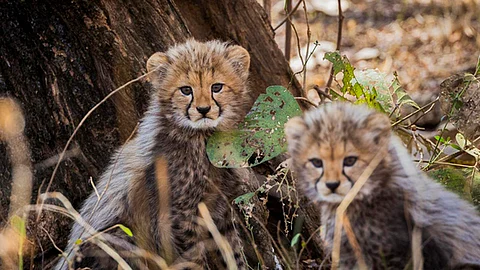

India’s ambitious cheetah reintroduction programme—Project Cheetah—has been under constant scrutiny, but leading scientists from the National Tiger Conservation Authority (NTCA), Project Tiger, and the National Zoological Park, Delhi, have come out strongly in its defence. In a peer-reviewed article published in Frontiers journal, they argue that much of the criticism is shaped more by ideological bias and media sensationalism than by scientific reasoning.
According to the researchers, early data from Kuno National Park—the primary site for reintroduction—indicates that the translocated cheetahs are adapting well to Indian ecosystems. Tracking data from radio collars reveal that free-ranging cheetahs are hunting a wide array of prey, including chital, sambar, blackbuck, and nilgai, with an average kill interval of around seven days. The cheetahs are also making use of diverse landscapes—from grasslands to riverine patches—and crucially, coexisting with a dense leopard population by tactically avoiding direct overlap.
The scientists acknowledge initial setbacks—such as mortality due to tick-borne diseases and infections—but say adaptive management has yielded results. Interventions like long-acting ectoparasiticides have successfully prevented further losses. Currently, six cheetahs roam free in Kuno’s unfenced wild terrain, and more are slated for phased release.
Contrary to claims that all cheetahs are confined, the article confirms ongoing plans for further translocations and new habitat preparations at Banni Grasslands and Gandhi Sagar Wildlife Sanctuary.
Calling for a more data-driven and less ideological debate, the authors urge critics to evaluate the project on the basis of facts. “Oversimplified extrapolations and sensational narratives do a disservice to conservation,” they warn.